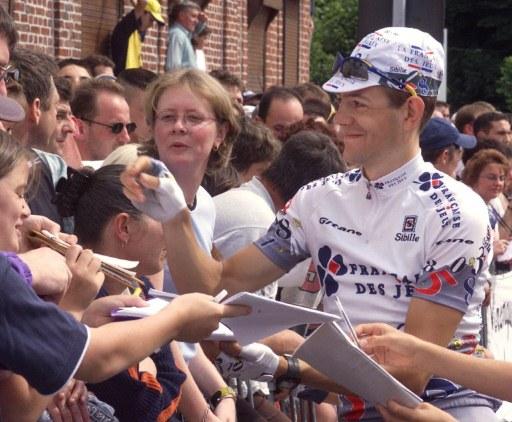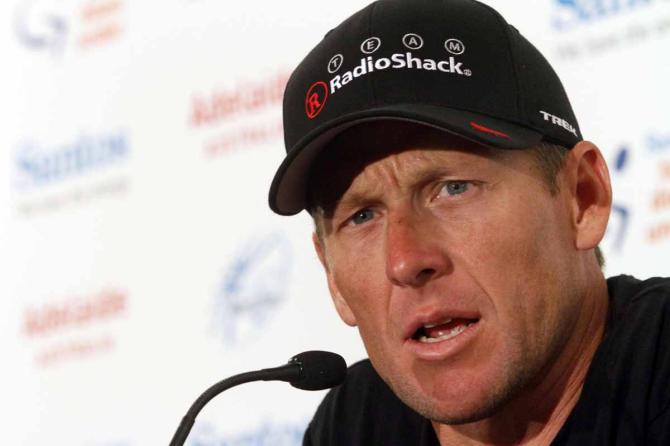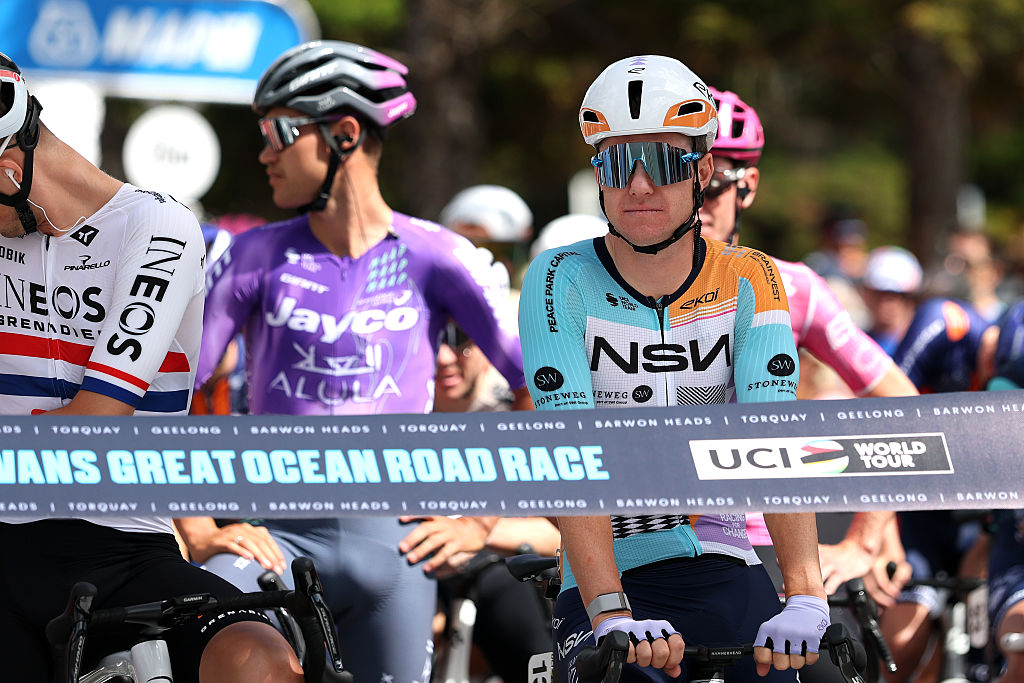Armstrong meets with Bassons to apologize for past behaviour
14 years after dispute, Armstrong and Frenchman bury the hatchet


Following his meeting with former US Postal soigneur Emma O’Reilly in Florida a few weeks ago, L’Équipe has reported that Lance Armstrong was in Paris on Friday where he made a second public burial of the hatchet with another of his old enemies, Frenchman Christophe Bassons.
The two could not have followed more different career paths since they fell out during the 1999 Tour, when Bassons was one of the first high-profile victims of Armstrong's bullying.
In 1999, after writing a column for French newspaper Le Parisien in which he questioned performances at the race, Bassons – already identified by his former Festina team-mates as the one rider who would not dope on the team – was allegedly pressured by Armstrong to quit the Tour, something Bassons now says did not happen in such clear terms. "I maybe felt it like that, but it's [also] been reported that Armstrong did me harm and threw me out of cycling, and that's not the case," Bassons told Armstrong, according to L’Équipe. "If you felt it like that, I'm sorry," Armstrong replied.
Bassons abandoned the race shortly afterwards, and retired from cycling two years later, at the age of 27. He then qualified as a sports teacher and now works in anti-doping in Bordeaux.
Sometimes described as a symbol of the Armstrong years and how clean riders were all too often frozen out of the sport, Bassons caught the train to Paris to meet up with Armstrong for their first conversation since 1999. Meanwhile, the American posed half-way down the Champs Elysées for a picture for the paper – "The taxi driver who brought me here didn't recognise me, he asked me if I knew it [the Champs]" the American wryly commented – before sitting down to a lengthy conversation with Bassons.
"There is a past and a present and now I think we can push forward the fight against doping and its prevention," Bassons said, while Armstrong admitted that the Frenchman "represents one extreme and I do another, whether that's [actually] true or not."
Asked by Bassons if he had any regrets about doping and lying, Armstrong said that he felt his 2009 comeback "was the worst idea I could possibly have had....do I have regrets? I honestly don't know if I would change my mind if this choice was given to me today. But I would have like never to have taken it [that choice.]"
The latest race content, interviews, features, reviews and expert buying guides, direct to your inbox!
Armstrong named Christophe Bassons, Scott Mercier and Darren Clarke as three riders who "took a different decision" on doping during his career, although he added that "there were surely others, but those are the ones I know" and also insisted that the media estimations of the extent of doping in his era "was greatly over-exaggerated."
Bassons also said that he believed that the overall classification of the Tour would not have changed without doping. "I believe that you have physical and psychological qualities that are outside the norm," he told Armstrong, before adding "That you are here today, for me, is more impressive than having won seven Tours."
Armstrong made it plain, on several occasions, that he regretted the events of 1999 and what happened between himself and the Frenchman: "If my son one day was wearing the yellow jersey and I saw him talking to Bassons the way I did, I would have a long, long conversation with him. It’s one of the episodes of my life that I regret the most."
The meeting was arranged in part with the help of Jamie Fuller, the Australian who funded the Change Cycling Now think tank last year. "Honestly, I'd like if you and I had dinner with Crocodile Dundee [Fuller] and Antoine Vayer, but not in an official way," Armstrong told Bassons.

